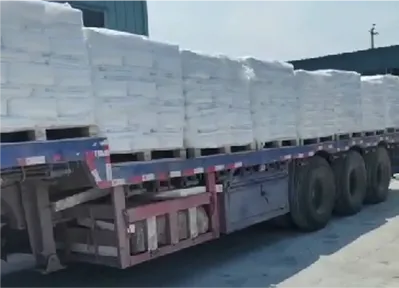
मई . 29, 2025 14:17 सूची पर वापस जाएं
Rutile vs Anatase: Choosing the Right Titanium Dioxide Grade for Paper
Titanium dioxide (TiO₂) is a crucial material in various industries, particularly in paper manufacturing, where it serves as a whitening and opacifying agent. Its high refractive index ensures excellent light-scattering properties, enhancing brightness and opacity in paper products. When selecting the right titanium dioxide powder for paper applications, manufacturers must consider the two primary crystalline forms: rutile and anatase. Each grade offers distinct advantages, influencing factors such as durability, brightness, and cost-efficiency.

Understanding Rutile and Anatase Titanium Dioxide Powder
Chemical Structure and Properties
Both rutile and anatase are naturally occurring polymorphs of titanium dioxide, but they differ in crystal structure and physical properties.
Rutile TiO₂ has a more compact, dense structure, making it more stable and resistant to weathering. It has a higher refractive index (2.7) compared to anatase (2.55), contributing to superior opacity and brightness in paper coatings.
Anatase TiO₂ has a looser crystal lattice, making it more photoreactive. While it provides excellent whiteness, it is less stable under UV exposure, which can lead to yellowing over time.
Performance in Paper Coating Applications
When used as a titanium dioxide powder supplier for paper coatings, the choice between rutile and anatase depends on the desired outcome:
Rutile TiO₂ is preferred for high-end paper products requiring long-term brightness and durability, such as premium printing paper and packaging materials.
Anatase TiO₂ is often used in lower-cost paper products where initial brightness is prioritized over long-term stability, such as newsprint and recycled paper.
Advantages of Rutile Titanium Dioxide Ceramic Coating for Paper
Superior Opacity and Brightness
Due to its higher refractive index, rutile titanium dioxide ceramic coating provides better light scattering, resulting in brighter and more opaque paper. This makes it ideal for high-quality printing papers, where color accuracy and sharpness are essential.
Enhanced Durability and UV Resistance
Unlike anatase, rutile TiO₂ is less prone to photocatalytic degradation, meaning it resists yellowing and maintains its brightness even under prolonged UV exposure. This makes it suitable for outdoor applications, such as posters and packaging exposed to sunlight.
Cost-Effectiveness in High-Performance Applications
Although rutile titanium dioxide powder is generally more expensive than anatase, its superior performance reduces the required dosage, leading to long-term cost savings in premium paper production.
Benefits of Anatase Titanium Dioxide Paint Coating in Paper
Higher Initial Whiteness
Anatase TiO₂ provides a slightly bluer white tone compared to rutile, making it appealing for applications where initial brightness is critical. This is particularly useful in lower-grade papers where long-term stability is less of a concern.
Lower Cost and Wider Availability
As a more abundant and easier-to-process form of titanium dioxide, anatase is often more cost-effective. Many टाइटेनियम डाइऑक्साइड पाउडर आपूर्तिकर्ताओं offer anatase at a lower price point, making it a popular choice for bulk paper production.
Better Dispersion in Certain Formulations
Anatase particles are typically smaller and more uniform, allowing for better dispersion in titanium dioxide paint coating formulations. This can improve coating smoothness and printability in some paper grades.
Key Considerations When Choosing Between Rutile and Anatase
End-Use Application Requirements
Premium Printing Paper: Rutile is the preferred choice for high-end brochures, art papers, and packaging due to its superior opacity and UV resistance.
Everyday Paper Products: Anatase may suffice for newspapers, notebooks, and other cost-sensitive products where long-term brightness is not critical.
Environmental and Aging Factors
If the paper will be exposed to sunlight or harsh conditions, rutile’s stability makes it the better option. For indoor-use paper, anatase can provide sufficient performance at a lower cost.
Coating Formulation Compatibility
The choice between rutile and anatase may also depend on the binder system and other additives in the titanium dioxide ceramic coating. Some formulations may interact better with one polymorph over the other.
Future Trends in Titanium Dioxide Usage for Paper Coatings
As sustainability becomes a key focus in the paper industry, टाइटेनियम डाइऑक्साइड पाउडर आपूर्तिकर्ताओं are developing eco-friendly alternatives, such as doped TiO₂ or hybrid coatings that reduce environmental impact. Additionally, advancements in nanoparticle technology may further enhance the efficiency of both rutile and anatase grades.
Selecting the right titanium dioxide grade—whether rutile or anatase—depends on balancing factors such as brightness, durability, cost, and application requirements.
Rutile TiO₂ excels in high-performance, long-lasting paper products.
Anatase TiO₂ offers a cost-effective solution for standard paper applications.
By understanding these differences, manufacturers can optimize their titanium dioxide paint coating formulations to achieve the best results for their specific paper products. Consulting a reliable titanium dioxide powder supplier can further ensure the selection of the most suitable grade for optimal paper quality and performance.
-
Application of Titanium Dioxide 2195 in Water Purification
समाचारNov.14,2025
-
What are the global market trends of Titanox titanium dioxide in recent years
समाचारNov.14,2025
-
Effect of particle size distribution on the optical properties of R996 TiO2
समाचारNov.14,2025
-
Latest Technological Innovations in Rutile Titanium Dioxide Manufacturing
समाचारNov.14,2025
-
Compatibility of Titanium Dioxide Concrete Pigment with Different Concrete Admixtures
समाचारNov.14,2025
-
Environmental Impact of Titanium Dioxide Pigment Manufacturing and Mitigation Measures
समाचारNov.14,2025
